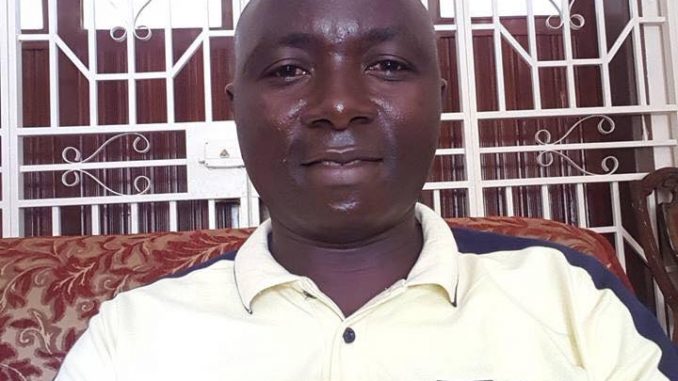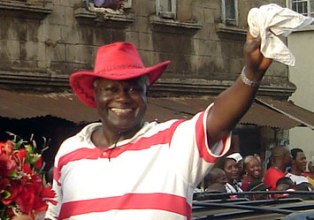
by Mahmud Tim Kargbo
It is as frightening as it is mysterious. Julius Bio did not create it, but he has catapulted it to new heights, though “depths” would be a more accurate metaphor. He also exemplifies its greatest danger. What I am referring to is our current political culture, which has become so extremist, small-minded, nasty and grounded in such staggering irrationality and ignorance, that it is hard to wrap one’s mind around it.
Characteristic of current politics is a strident focus on narrow concerns, zealous commitment to single issues and political identities built around them, a savage division of the Sierra Leonean people by class, ethnicity, region, political party ideology meant to address the concerns of the selected few, with an activism that allows for no compromise. Moreover, how is it that so many current SLPP government officials express political views, often with great anger against the actions of the previous APC government, that have no basis in fact, lack any nuance, defy evidence, and in many cases, undermine their own self-interest?
What President Bio really hope to achieve, when with no evidence, he accused Members of Parliament from the main apposition Party (APC) that they attempted to bribe Members of Parliament from his ruling SLPP Party to vote against the Commission of Inquiry? Was he thinking rationally minded beings would treat his words seriously with such baseless statement? Is it not disrespectful to the voters and tax payers for our President to make such public pronouncement against elected Members of Parliament without providing evidence?
Frightening it certainly is. Democracy requires an informed citizenry and an engaged public capable of weighing evidence and coming to reasoned decisions. Voltaire could have been addressing our current moment when he said, “Those who can make you believe absurdities can make you commit atrocities.” What we experience today seems unworthy of and alien to an advanced society.
How We Got to This Point:
How have we come to this point? How are we to understand the extremism and irrationality which characterises so much of our current political culture? The answers, of course, are many and complex, and as with so many social conundrums, I suggest a few.
We need to begin with economic factors. For many working Sierra Leoneans, the economy isn’t functioning anymore. The “new direction” economy, characterised with the blocking leakages promise to increase the revenue base by information technologies with increased automation for more social service protection for all nationals, has left behind quality civil servants that aren’t SLPP members/supporters or that don’t come from the Eastern and Southern part of Sierra Leone. Their knowledge have moved abroad, the economy have been gutted, leaving professionals that aren’t supporting SLPP, but worked under the previous regime unemployed. The doors to upward mobility, which is suppose to be the engine for Sierra Leone’s economic productivity and personal fulfillment through work, have been slammed shut. They are without hope, and they despair for their children. Economic dislocation and despair give rise to powerlessness that fuels anger: anger against the current government, anger against the current political class, which they now believe, correctly, has abandoned them in the service of its own power and wealth; anger against Southerners and Easterners, whom they are led to believe are taking jobs based on political, regional and tribal influence. And desperation and anger leave people prone to simplistic and extremist ideas, which they cling to as their salvation.
As an offshoot of the above, this cohort feels abandoned, exploited and taken for granted by the Bio led government. This has opened space for the emergence of authoritarian, demagogic and know-nothing leadership, which promotes itself as embodying directly the will of the people and which alone can put an end to their distress.
Current Tribalism Is Fostering “In-group vs Out-group” Thinking:
Where I am leading is to the conclusion that we can understand much of the irrationalism and extremism of current politics as resulting from something akin to tribal identity. Tribalism, loyalty to one’s group, is an extraordinarily powerful force. All people seek to feel at home in the world. And in great measure that entails reinforcing their personal identities by associating with others much like themselves—those who share with them their values, customs, social habits and ways of life. While this is true to varying degrees in all people, when tribalism becomes excessive, the stage is set for drawing lines between in the in-group and out-groups, us and them, we who are virtuous and they who are to be shunned and reviled.
So powerful can the dynamic of group loyalty become that it can drown out the voice of reason. The reinforcement of communal bonds can deafen one to the claims of evidence or the appeals of outsiders to fundamental recognition and respect. The desire to fit in and feel good and right about oneself trumps all other concerns. Hence the hatred, extremism and irrationalism of our current political climate.




